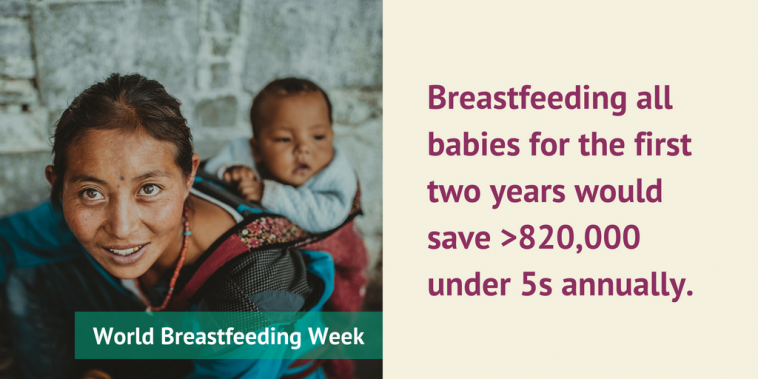Breastfeeding: Foundation for Life

Breastfeeding can have multiple benefits for both newborn babies and their mothers, with the World Health Organization (WHO) recommending it as "the best way to give your child a great start in life".
Not all women are able to breastfeed their infants, but for those who can, this combined feeding and bonding process can provide newborns with the perfect foundation for the rest of their lives.
Breastfeeding 'the best start in life for infants'
WHO recommends that babies are exclusively breastfed during their first six months, and that colostrum - the sticky breast milk produced towards the end of pregnancy - is given to infants within the first hour after birth.
In fact, research published in The Lancet in 2016 showed that six months of exclusive breastfeeding correlated with an improved chance of survival throughout childhood and adolescence.
There is also evidence showing that breast milk can boost babies' immune systems as it contains antibodies that help protect infants from common childhood illnesses such as diarrhoea and pneumonia, the two primary causes of child mortality worldwide.
The benefits of breastfeeding can extend into later life too, with the Lancet study finding that infants fed in this way for an extended period tend to perform better in school, with researchers believing that the economy misses out on $300 billion (£228 billion) each year due to this potential breastfeeding benefit remaining unrecognised. Indeed, breastfeeding uptake remains low in many parts of the world, despite its benefits.
Only 37% of children younger than 6 months of age are exclusively breastfed in low and middle-income countries.
The World Health Organisation believes that as many as 820,000 lives could be saved across the globe each year if more women are encouraged to breastfeed.
Breastfeeding benefits for new mothers
It is important that women receive this support, as breastfeeding their infants can have health benefits for them too. WHO reports that it can help to reduce the risk of certain types of cancer, including breast and ovarian, as well as type 2 diabetes.
In addition, naturally feeding infants has been associated with a lower risk of postnatal depression, and it can even act as a form of birth control. However, this is not completely fail-safe, working at a rate of around 98 per cent for the first six months that a woman is breastfeeding.
Breastfeeding also helps with mother-baby bonding, allowing a woman to spend precious time with her new baby as she provides her with a foundation for life.